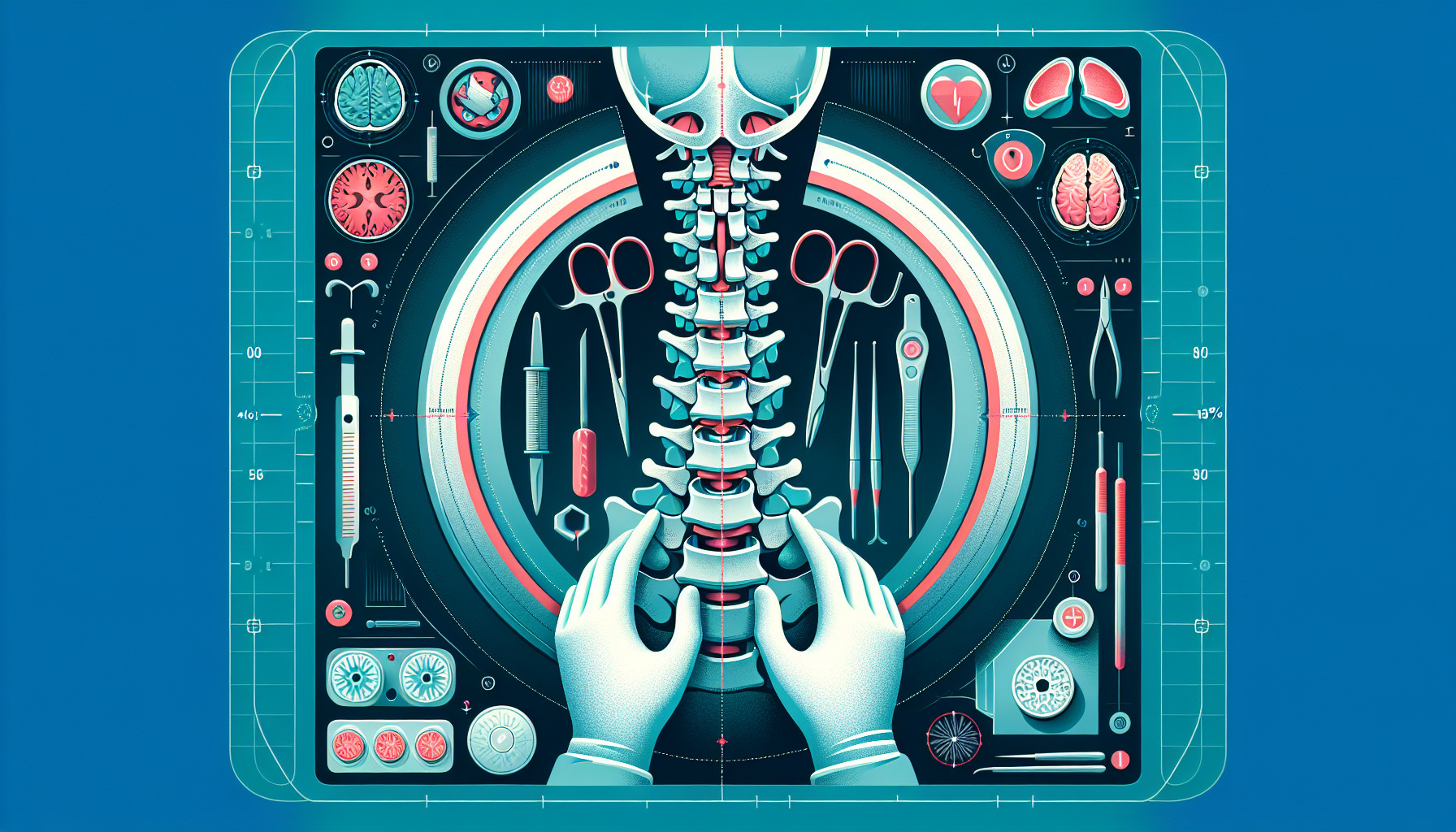Our Summary
This study looks at the outcomes of spinal surgeries in patients who have previously had a kidney transplant. The research shows that these patients often face more complications, have a longer stay in the hospital, and require more expensive care than those who have not had a transplant. They are also more likely to need blood transfusions and are often discharged to other care facilities rather than going home. The researchers suggest that doctors and patients need to be aware of these increased risks when considering spinal surgery for someone who has had a kidney transplant.
FAQs
- What are the potential complications of spinal surgery for patients who have had a kidney transplant?
- Are kidney transplant patients more likely to require blood transfusions and more expensive care post-spinal surgery?
- What factors should doctors and patients consider before undergoing a spinal surgery for someone who has had a kidney transplant?
Doctor’s Tip
It is important to follow your doctor’s post-operative instructions carefully to ensure proper healing and a successful outcome. This may include restrictions on certain activities, physical therapy exercises, and proper pain management. It is also important to attend all follow-up appointments and communicate any concerns or changes in symptoms to your healthcare provider.
Suitable For
Patients who are typically recommended spinal fusion are those who have:
- Degenerative disc disease
- Spondylolisthesis
- Spinal stenosis
- Herniated discs
- Spinal fractures
- Scoliosis
- Spinal tumors
- Failed back surgery syndrome
These patients may have symptoms such as chronic back or neck pain, weakness, numbness, and tingling in the extremities, difficulty walking or standing, and loss of bowel or bladder control. They have usually exhausted non-surgical treatment options such as physical therapy, medications, injections, and chiropractic care. Spinal fusion may be recommended to stabilize the spine, relieve pain, improve function, and prevent further damage to the spinal cord or nerves.
Timeline
Before spinal fusion:
- Patient experiences chronic back pain and/or neurological symptoms such as numbness or weakness in the limbs.
- Patient undergoes a thorough evaluation by a healthcare provider, including physical examination, imaging tests (such as X-rays or MRIs), and possibly a trial of conservative treatments such as physical therapy or medications.
- If conservative treatments are unsuccessful, the patient and their healthcare provider decide that spinal fusion surgery is the best option to relieve their symptoms and improve their quality of life.
After spinal fusion:
- Patient undergoes pre-operative preparation, including medical clearance, blood work, and possibly a pre-surgical counseling session.
- Patient undergoes spinal fusion surgery, which involves fusing two or more vertebrae together using bone grafts and hardware such as screws and rods.
- Patient spends a few days in the hospital recovering from surgery, receiving pain management and physical therapy to help with mobility and strength.
- Patient is discharged from the hospital and continues their recovery at home, following a rehabilitation plan prescribed by their healthcare provider.
- Patient gradually resumes normal activities and experiences a reduction in their symptoms over time, with the goal of improved function and quality of life in the long term.
What to Ask Your Doctor
Some questions a patient should ask their doctor about spinal fusion, especially if they have had a kidney transplant, may include:
- What are the potential risks and complications of spinal fusion surgery for someone who has had a kidney transplant?
- How will my kidney transplant history impact the success and recovery of the spinal fusion surgery?
- Will I need to take any special precautions or medications before, during, or after the surgery due to my kidney transplant?
- How will my kidney function be monitored during and after the surgery?
- Are there any alternative treatments or procedures that may be safer for someone with a history of kidney transplant?
- How long is the recovery process expected to take, and what can I do to optimize my recovery given my kidney transplant history?
- Will I need closer monitoring or follow-up care post-surgery due to my kidney transplant history?
- Are there any specific signs or symptoms I should watch for that may indicate complications related to my kidney transplant during or after the surgery?
- Will I need to consult with my transplant team or nephrologist before proceeding with spinal fusion surgery?
- Can you provide any additional resources or information about spinal fusion surgery for patients with a history of kidney transplant?
Reference
Authors: Caras A, Gallagher C, Mugge L, Qu W, Schroeder J, Ortiz J. Journal: World Neurosurg. 2020 May;137:e269-e277. doi: 10.1016/j.wneu.2020.01.167. Epub 2020 Feb 14. PMID: 32006732
